BOOC Under Fire: A Trader's Nightmarish Experience
Abstract:In a shocking revelation that casts a dark shadow over BOOC, a trader from Vietnam has come forward with a harrowing account of financial manipulation and deceit.
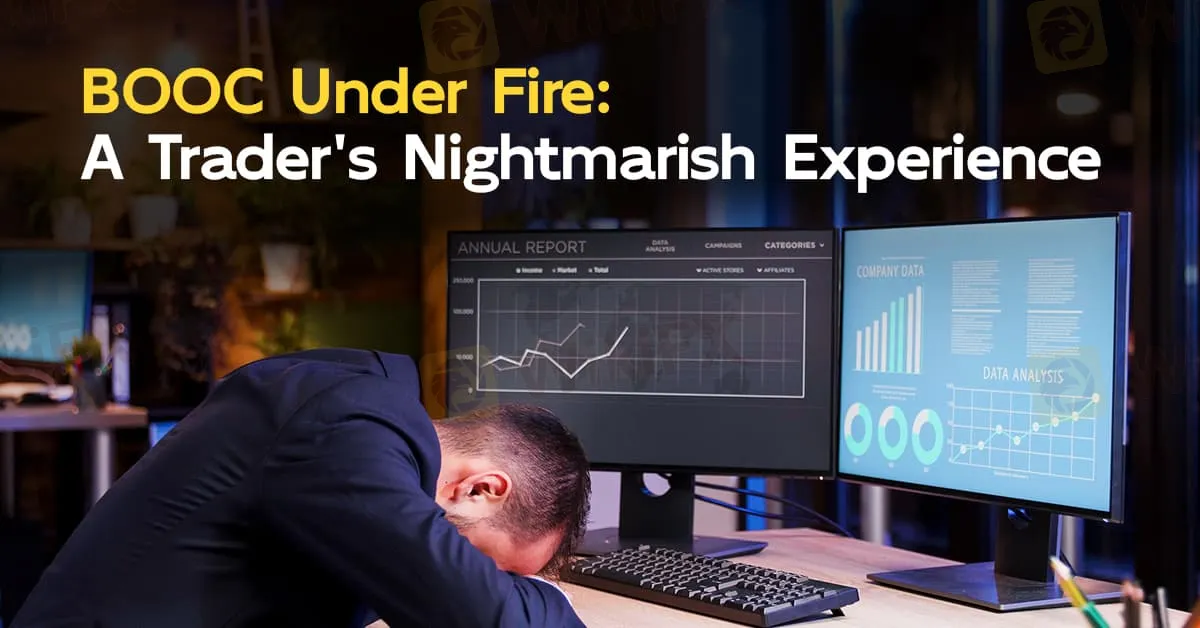
In a shocking revelation that casts a dark shadow over BOOC, a trader from Vietnam has come forward with a harrowing account of financial manipulation and deceit. Nguyen Hai Duong, a 24-year-old trader, has accused BOOC of withholding a substantial sum of $3 million USD that he deposited, painting a grim picture of the company's unethical practices.
The Incident
Nguyen's ordeal began when he deposited a significant amount of money into his trading account at BOOC. Despite diligently adhering to the platform's policies and engaging in long-term trading, he soon found himself embroiled in a series of disputes with the company. Here is his account, as shared with WikiFX:
“At Admiral, they claim I made pricing errors, but my positions were long-term for nearly two weeks, without participating in any bonuses or programs. I accept overnight fees. When I had profits and wanted to close my positions, they blamed me for violating their policy. Then, when they couldn't justify that, they found another excuse, saying I traded at incorrect prices. I demanded evidence of where I traded at incorrect prices, and if they couldn't provide it, they should refund my money.”












Lack of Transparency and Accountability
Nguyen's attempts to resolve the issue were met with resistance and obfuscation. Despite his repeated requests for evidence of the alleged pricing errors, BOOC failed to provide any concrete proof. Instead, the company continued to levy baseless accusations against him. Nguyen contends:
“As for me, I can prove to Admiral that I didn't make pricing errors by providing evidence from other platforms where prices were no different from Admiral's. I suspect the Admiral deceived me and took $9021 from me, and my friends are also being targeted by the Admiral, with a total amount close to $27000.”
This pattern of behavior suggests a deliberate strategy by BOOC to defraud long-term traders of their rightful profits. By fabricating charges of pricing errors, the company appears to be systematically seizing the earnings of its users.
A Call for Justice
Nguyen's story is not an isolated incident. He reveals that his friends have also fallen victim to similar tactics, collectively losing close to $27,000. This points to a broader, more insidious problem within BOOC, one that demands immediate attention and action.
“I believe Wiki is an app that can ensure fairness for all traders, so I hope you can help me so that other traders don't face the same situation as me in the future. Admiral refuses to acknowledge my emails or evidence; instead, they claim I made pricing errors. All I see is whenever I have profits, Admiral finds excuses to take all of our profits because we are long-term traders. We didn't participate in any wrongdoing, but the Admiral only seeks reasons to seize our profits.”
Nguyen's plea to WikiFX underscores the urgent need for a thorough investigation into BOOC's practices. Regulatory bodies and consumer protection agencies must step in to safeguard traders from such exploitative behavior.
Conclusion
The allegations brought forth by Nguyen highlight a disturbing trend of malpractice at BOOC. If left unchecked, these actions could erode trust in trading platforms and jeopardize the financial well-being of countless traders. It is crucial for the trading community to rally behind Nguyen and others like him, demanding transparency, accountability, and justice.
This exposure serves as a stark reminder of the importance of vigilance and due diligence when dealing with financial institutions. As Nguyen's case unfolds, it is hoped that his courage in speaking out will pave the way for greater scrutiny and reform within the industry.

Read more
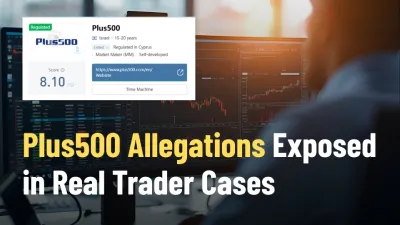
Plus500 Allegations Exposed in Real Trader Cases
Plus500 allegations revealed: trader complaints, withdrawal delays, and regulatory oversight explained in detail.
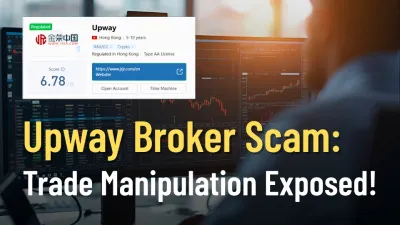
Upway Broker Scam: Trade Manipulation Exposed!
Upway Scam Alert: Broker faces backlash for backend manipulation, severe slippage, and withdrawal blocks. Real trader exposures uncovered.
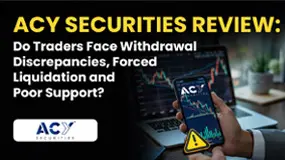
ACY SECURITIES Review: Do Traders Face Withdrawal Discrepancies, Forced Liquidation and Poor Support
Does ACY SECURITIES wipe out your trading gains in the name of scalping arbitrage? Do you find their demand for inventory fees illegitimate? Do you sense a Ponzi scam-like investment when trading through the broker? Have you faced a forced liquidation of your forex positions by ACY SECURITIES? There have been a plethora of forex trading complaints against the broker. Read on as we share the ACY SECURITIES review in this article.
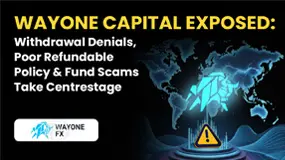
Wayone Capital Exposed: Withdrawal Denials, Poor Refundable Policy & Fund Scams Take Centrestage
Failed to receive funds despite initiating the Wayone Capital withdrawal request? Have you found the broker’s refundable policy manipulative? Did Wayone Capital block your investment fund? Do you constantly face technical issues at Wayone Capital? Many traders have vehemently opposed these scam-like tactics on broker review platforms. In this Wayone Capital review article, we have shared many such complaints. Take a look!
WikiFX Broker
Latest News
'Worse Than COVID': Weak US Manufacturing Surveys Signal Stagflation In November
Offshore Forex Brokers Ramp Up Expansion in Vietnam as Authorities Crack Down on Scams
Absolute Markets 2025: Is It Scam or Safe? Suitable for Traders in Pakistan?
UK snack brand Graze to be sold to Jamie Laing\s Candy Kittens
FTMO Completes Acquisition of Global CFDs Broker OANDA, Marking a Major Milestone
Scam Alert: 8,500 People Duped with Fake 8% Monthly Return Promises from Forex and Stock Investments
HEADWAY: The Fast Track to Financial Dead-Ends?
ThinkMarkets Review: Why High Ratings Are Masking a "Withdrawal Black Hole"
FXGROW Exposed: Complete Review & Customer Complaints Analysis
The Impossible Two Percent: Why Central Banks Cannot Afford Price Stability
Rate Calc


